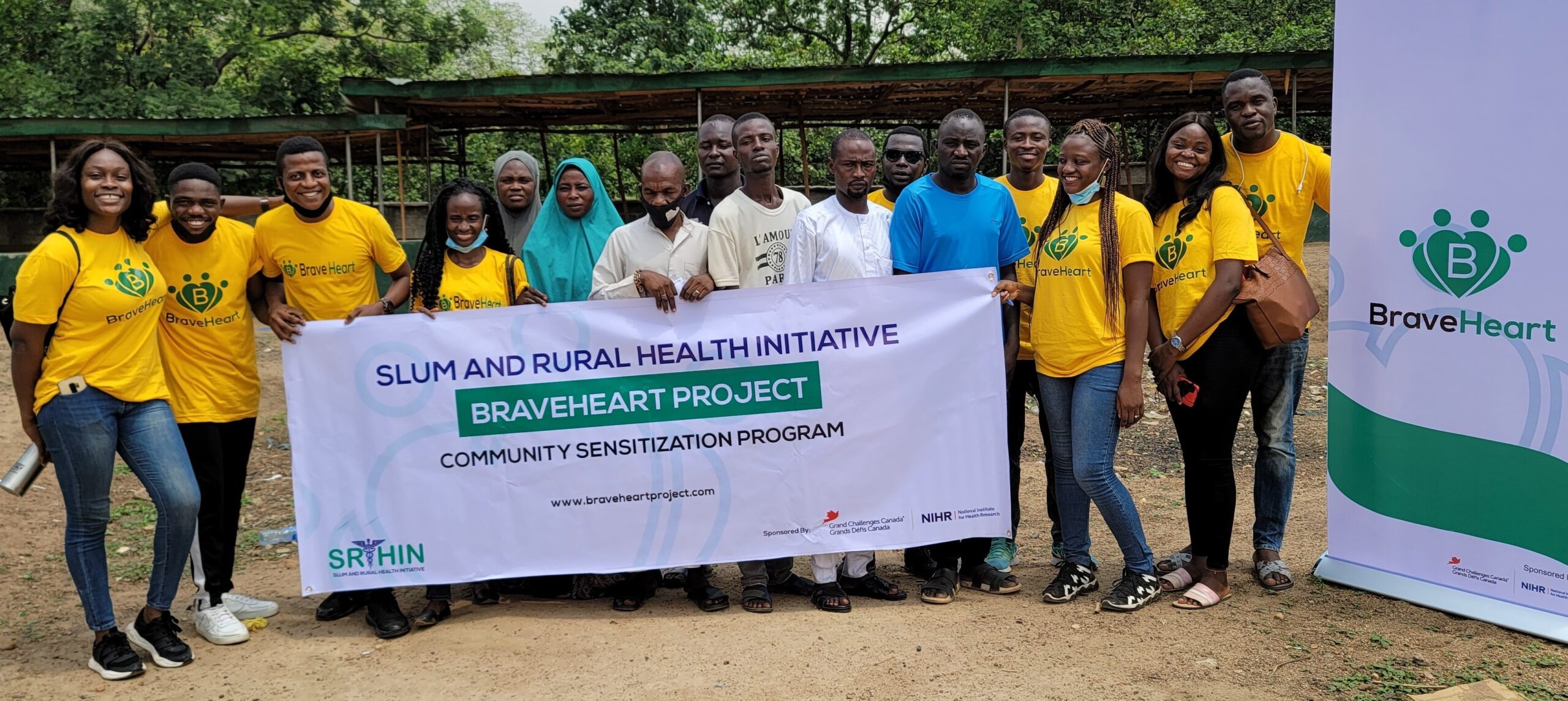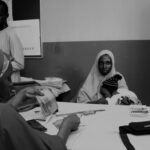The healthcare gap between urban centres and rural areas in Nigeria is stark. While city residents often enjoy access to numerous hospitals, clinics, and specialists, millions of rural Nigerians struggle to receive basic healthcare, leading to poorer health outcomes, higher mortality rates, and lower life expectancy.
But the story doesn’t end with these challenges.
Several organisations and initiatives are working to mitigate the healthcare deficit in rural Nigeria, often with significant impact. Groups like AFENET (African Field Epidemiology Network) and HERFON (Health Reform Foundation of Nigeria) are addressing some of the fundamental issues.
AFENET, for instance, has successfully trained public health workers and implemented projects to enhance healthcare systems in various African countries, including Nigeria. Its collaboration with local health ministries has laid the groundwork for building sustainable healthcare solutions. On the other hand, HERFON focuses on health policy advocacy, pushing for reforms that can improve healthcare delivery across the country, whether in urban or rural areas.
Local NGOs like the Slum and Rural Health Initiative and Rural Health Mission Nigeria are also driving solutions through grassroots efforts. They address immediate needs by equipping healthcare centres, providing health education, and focusing on maternal and child health—often the most vulnerable populations in rural settings.
Bridging the Gap with Telemedicine
One promising solution for addressing the shortage of healthcare workers in rural areas is the growing use of telemedicine. By leveraging technology, healthcare professionals in urban centres can offer remote consultations, diagnoses, and even guidance on treatment to patients in rural communities. This allows for expert medical advice to reach remote areas without requiring healthcare workers to be physically present.
However, the success of telemedicine hinges on the availability of reliable internet infrastructure and training for both healthcare providers and patients. Expanding internet access and offering technical support in rural communities can make this a more viable solution to the healthcare deficit.
Affordable Healthcare Through Insurance Schemes
Financial barriers remain a significant challenge for many Nigerians living in rural areas. A promising model to address this is the introduction of community-based health insurance schemes. These programmes allow rural communities to pool their resources and share the costs of healthcare services, making it more affordable for everyone. By expanding these insurance schemes, healthcare can become more accessible, reducing the tendency to avoid medical treatment until it is too late.
Investment in healthcare infrastructure, particularly in rural areas, is fundamental to closing the gap. This includes the construction and renovation of healthcare centres, equipping them with necessary medical tools, and ensuring consistent power and water supply. Without adequate infrastructure, healthcare providers are limited in their ability to deliver quality care.
While NGOs have made commendable strides, their efforts alone are not enough. The Nigerian government must play a more active role by increasing its healthcare spending, especially in rural areas. Additionally, offering better incentives—such as improved pay, housing and career development opportunities—could help attract and retain healthcare professionals in these communities.
Health Literacy and Community Involvement
Another solution that could significantly improve rural healthcare outcomes is raising health literacy. Outreach programmes focusing on preventive care, the importance of immunisations, and maternal and child health can empower rural residents to take proactive steps in managing their health. By increasing awareness of the benefits of early medical intervention and vaccinations, preventable diseases and deaths can be reduced.
A Collaborative Path Forward
Although the challenges are considerable, the healthcare gap in rural Nigeria is not insurmountable. The key lies in collaboration. By combining the efforts of NGOs, the private sector, and government policies, more substantial progress can be made. The focus must be on sustainable solutions—improving infrastructure, expanding telemedicine, introducing affordable insurance schemes, and boosting health literacy.
The solutions already being implemented offer a blueprint for what is possible. If Nigeria invests in these approaches, the nation can move closer to a future where all citizens, regardless of their location, have access to quality healthcare. This is not just a story of disparity, but a story of opportunity and hope for building healthier communities.
The healthcare disparity between urban and rural areas in Nigeria is significant, with rural Nigerians often unable to access basic healthcare services, resulting in poor health outcomes and reduced life expectancy. However, several organizations, including AFENET and HERFON, are working to mitigate this gap through training public health workers and advocating for policy reform. Grassroots NGOs are also addressing immediate needs by equipping healthcare centers and focusing on vulnerable populations, such as maternal and child health.
Telemedicine presents a promising solution by enabling remote healthcare consultations and diagnoses through technology, contingent on reliable internet access and proper training. Community-based health insurance schemes offer another model to make healthcare more affordable, while investment in healthcare infrastructure is essential to improving rural healthcare delivery. The Nigerian government needs to increase healthcare spending and offer better incentives to attract healthcare professionals to rural areas.
Additionally, raising health literacy through outreach programs can empower rural residents to take proactive health measures, reducing preventable diseases. Collaboration among NGOs, the private sector, and government is key to addressing these challenges. By focusing on sustainable solutions, such as improved infrastructure, telemedicine, insurance schemes, and health education, Nigeria can work towards equitable healthcare access for all its citizens. This effort reflects not just a disparity, but an opportunity to build healthier communities.






